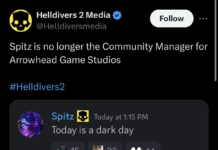Front page layout
Site theme
Sign up or login to join the discussions!
Kyle Orland –
The International Game Developers Association (IGDA), a professional group of thousands of game makers from around the world, is increasingly concerned that the «ethical issues» surrounding the use of non-fungible tokens in gaming represents a «socio-political explosion waiting to happen.» That’s according to Dr. Jakin Vela, the founder of social justice-focused gaming nonprofit Games for Me. Vela was recently named interim director of the IGDA.
The IGDA’s Climate Special Interest Group also compiled a growing list of arguments against NFTs in gaming. That document notes that gaming communities and game developers are largely uninterested in the technology, with 70 percent of game makers saying in a recent survey that they have no interest in using NFTs in their upcoming projects.
Now, though, Vela tells Ars that addressing the increasing levels of hype and investment around NFT gaming is still «one of our priorities» at the IGDA. The organization is «in the process of revising our stance to be a little stronger because there are actually a lot of ethical issues that come with NFTs,» he said.
Among those issues, Vela said, is the prevalence of NFT-based «pyramid schemes,» where new money from later players is required to increase the value of highly speculative NFT purchases from early players. See this report from consulting firm Naavik for more detail on how games like Axie Infinity require a constantly growing player base to power their «play-to-earn» economy.

Beyond that kind of economic structure, though, Vela said «there’s also the ethical issues of a have/have-not creation» in NFT gaming economies, where «power differentials can play a key component.» There’s a major risk, Vela said, that NFT-based games could divided players into those «who maybe use it as a means for employment» and «others [who] can just as easily take advantage. It’s a very socio-political explosion waiting to happen, I think.»
While some view the crypto marketplace as a libertarian paradise free from restrictive government regulations, Vela sees that factor as a major potential vulnerability for gamers. Players who try to earn money through NFT gaming face a situation where «their resources—their entire investment in their employment activities—are reliant on this unregulated, really uncertain future ecosystem,» he said, «and it can put people in some murky waters, I think.»
But Vela suggested to Ars that the organization’s thinking is changing even on this compromise position. «Even now, more research is coming out, and proof of stake is still reliant on ecosystems that are driving carbon emission up further,» he said.
Vela said the IGDA is working on a more focused statement addressing issues that touch on «more than just the environment.» The group is «having recurring meetings to ensure that we’re understanding all aspects of it.» Those meetings might be necessary because, as Vela puts it, there’s «a lot of technical jargon that leaves even a lot of intelligent people thinking, ‘Wait, but what? But why? I’m buying a receipt for what?’… If things were demystified for people, it would be a bit easier to understand and it would help inform individual decisions.»
You must login or create an account to comment.
Join the Ars Orbital Transmission mailing list to get weekly updates delivered to your inbox.
CNMN Collection
WIRED Media Group
© 2022 Condé Nast. All rights reserved. Use of and/or registration on any portion of this site constitutes acceptance of our User Agreement (updated 1/1/20) and Privacy Policy and Cookie Statement (updated 1/1/20) and Ars Technica Addendum (effective 8/21/2018). Ars may earn compensation on sales from links on this site. Read our affiliate link policy.
Your California Privacy Rights | Do Not Sell My Personal Information
The material on this site may not be reproduced, distributed, transmitted, cached or otherwise used, except with the prior written permission of Condé Nast.
Ad Choices










